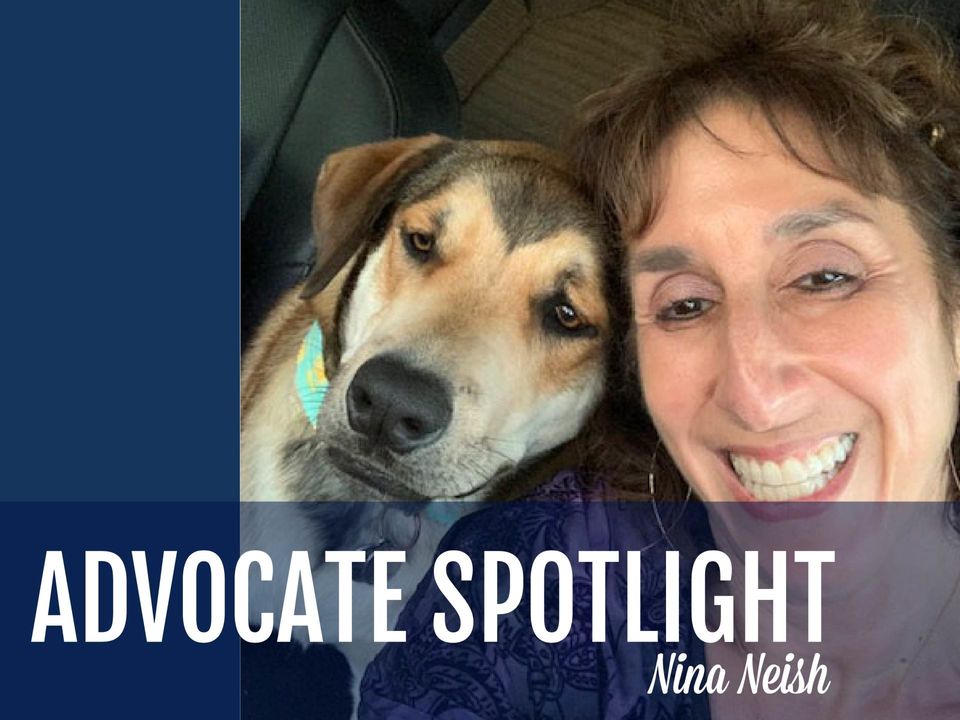Advocate Spotlight: Nina Neish
April Advocate Interview

1. How long have you been an Advocate and when did you realize you wanted to become one?
I was an advocate in Houston, took my first case there in February 2002. Then we moved to San Antonio in December 2010 , I took the training here in the beginning of the year and have been an advocate here since 2011. I knew I wanted to be an advocate when I worked for a weekly newspaper in Houston ad we use to run ads for Child Advocates there that said, “Help Children Slay their Dragons. “ I went to an orientation and knew I wanted to do it right away. I didn’t have kids yet and knew I wanted to make a difference with children.
2. What is the most rewarding aspect of being an Advocate?
It’s how when I am working a case I always feel like my input and the information I share with the judge is important. I feel like I am making a difference and the situation for the child could have been very different if I had not been on the case. I love that the judges really listen to what we have to contribute. It’s rewarding to help the child get to a better place.
3. If you could offer words of encouragement to your fellow and incoming Advocates, what would they be?
To be prepared for a roller coaster of ups and downs, lots of different twists, turns and emotions. I would tell them to just hold the vision that they are making a difference for the child/children no matter what. Even if they are frustrated or are unsure of what they are doing. They are helping just by being a part of the childs life and the case itself. I would also tell them to feel free to reach out to other advocates for guidance, or to vent or just to think up strategies. There are always other advocates willing to help.

In November 2025, Child Protective Services received a referral involving two sisters, ages 13 and 14, who were found caring for themselves. Following the death of their father, the girls experienced ongoing abuse and neglect. They were living in unsafe and unsanitary conditions, frequently left alone without adequate food, functioning plumbing, or consistent supervision, and were exposed to strangers regularly coming in and out of the home. Shortly after removal, Tameka Woolfolk was appointed as the Advocate on the case. From the very beginning, Tameka became one of the few consistent and reliable adults in the girls’ lives. The children experienced and continue to endure placement changes. These frequent transitions created ongoing instability and further complicated the girls’ ability to heal and adjust. Throughout each move, Tameka remained steadily involved, working diligently to ensure that the children’s services and support continued without interruption. She supports the girls not only emotionally, but physically as well helping pack their belongings at each move, accompanying them during school tours, and remaining readily available whenever they need support. Neither child was initially aware that they had the right to speak directly with the judge. Tameka recognized the importance of their voices being heard and with the support of the Ad Litem, helped to facilitate their presence at court, requesting that the judge meet with the girls in a breakout room, so they could personally express their wishes, all with the department, CASA and the Ad Litem by their side. In addition, this case was referred to Collaborative Family Engagement (CFE). During CASA’s ongoing exploration for family connections alongside the Department, Tameka discovered the children’s father’s obituary. Through this discovery, it was learned that the girls’ father had served in the United States Army as a combat medic during the Vietnam War and later worked for 30 years in civil service. Tameka took the initiative to request documentation, including VA records and a death certificate, to determine whether the children might be eligible for survivor benefits. The obituary also revealed that the girls are two of fourteen siblings. While many of the siblings were unable to provide support, CASA and the Department were able to establish contact with one brother. Through Tameka’s strong collaborative relationship with the Department and the Attorney Ad Litem, a thoughtful and appropriate plan was developed to allow the girls to begin visits with their brother, his wife, and their cousins. Although this story is still unfolding, both girls know one unwavering belief, that no matter what comes next, they know that Miss Tameka will continue to stand beside them every step of the way.







